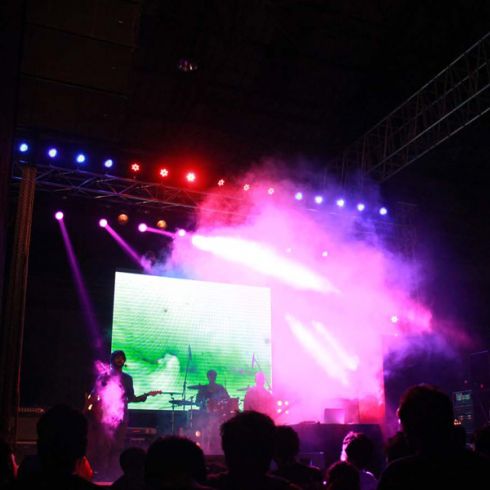
MUMBAI: According to the recently released Finance Bill of 2015, the Annual Budget exemption would be limited to Rs 1, 00,000 of service tax for one performance by artists in various folk or classical art forms. What it means is that any music artist who is offered more than Rs 1 lakh for a performance will be subjected to paying service tax from next month.Radioandmusic.com spoke to few musicians on their take of the same.
Hindustani classical table player Bikram Ghosh opined, “There is a 30 per cent slab of income tax that the musicians have to pay, and now adding the service tax, it becomes quite a burden.” He further added, “Artistes do not have provident funds provided by companies to last them during their retirement. Artists have to watch out for themselves when they grow old.” Ghosh also stated that, he has not spoken to his lawyer yet about the ramifications regarding the service tax levied upon music artistes.
Celebrated sitar prodigy Purbayan Chatterjee also had some interesting opinions about the musicians being levied service tax. Chatterjee said, “I strongly feel that Hindustani classical music should be kept out of this purview. In fact, classical music artists should be kept out of TDS (Tax Deducted at Source) completely.” He further added, “Classical music is not a service industry. For an event organising company, the service tax has been increased by 14 per cent. This, in turn, discourages people from organising classical music events.”
Music IP producing company Art and Artistes (I) Pvt. Ltd. Founder Durga Jasraj agrees with Chatterjee on having classical music artistes exempt from the service tax. “I strongly feel that classical musicians should be exempted from paying the service tax. We are able to secure classical and folk musicians with great difficulty; and to then have them asked to pay huge sums of money as service tax is extremely unjust.” She went on to say, “Service tax is not a very welcome tax for live musicians. It has to be categorised properly. If it were a mainstream popular singer who was being paid Rs. 5 crore for on performance, then paying the service is understandable. But not the classical music artistes; especially not the ones who do not come in the ‘heavily paid bracket’.”
Jasraj also stated that when her company calculated, from next month if a classical music artist gets paid Rs 1, he or she is required to pay 70 paise only in taxes. She added that on 10 March, her company will be writing to the concerned Ministry and will try and arrange a meeting with the concerned Minister.
“For the past decades, the Government has done nothing for either the promotion or the preservation of Indian classical and folk music. And, with this recent service tax, I fear the conclusion of the mass’s exposure to Indian classical music,” concluded Jasraj.
The service tax is not just restricted to music artists. The tax exemption has been extended for numerous other activities, including for exhibition of cinematographic film, circus, dance, or theatrical performances including drama or ballet, award functions, or any sporting event where the entry admission is up to Rs. 500 per individual.